Wyniki wyszukiwania
88 results for query Strategy
Reports(36)
-
Heating transformation 2030 | Small district heating systems

87.5% (463 out of 529) of all district heating systems in Poland do not have the status of efficient systems. They must change this if they want to maintain access to public aid in the future and continue to provide Poles with heat at a reasonable price.
23.11.2017 -
The last bell for district heating in Poland

District heating in Poland urgently needs to be modernised. Negotiating transitional periods for EU legislation has so far allowed difficult decisions to be postponed. However, the deadlines are running. A comprehensive review of district heating systems is necessary.
24.10.2017 -
Polish energy sector 2050 | 4 scenarios

What will be the result if Poland keeps its energy mix based on coal, introduces nuclear power or promotes renewables? Forum Energii analysed four different scenarios for the development of the Polish energy sector over the next 30 years. Report presents the economic, social and environmental implications of their implementation.
22.9.2017 -
Revenues from ETS auctioning as source of financing for low-emission modernization in Poland
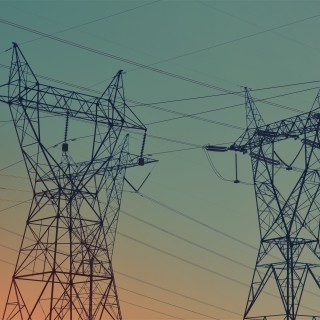
Revenues from auctioning of the national pool of ETS allowances may become the major source of financing for low-emission modernization of energy sector in the coming decade (2021-2030).
8.6.2016 -
Polish power sector riding on the wave of megatrends

Megatrends are major and permanent changes of social, economic, technological or political nature that affect societies, governments, and economies of particular countries. They form slowly but when accelerated, they are irreversible. Together with experts, we have identified the most important megatrends in the European energy sector that are affecting Poland.
27.1.2016 -
Risk preparedness in an integrated European electricity market
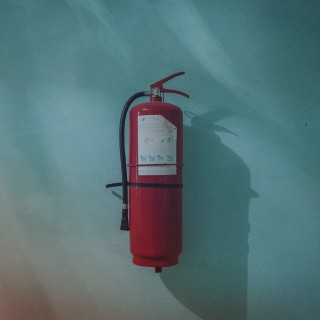
An integrated European electricity market will benefit consumers through lower prices, more cost-effective integration of renewable resources, and improved system reliability. A central question often asked in the context of the IEM is: can Poland rely on resources from neighbouring countries in a crisis situation? Is it safe to integrate market when national transmission system operators (TSOs) are responsible for managing energy systems in Europe.
2.7.2018 -
COP24 in Katowice | Manual

COP24 - the climate summit in Katowice will be the largest gathering in the world under the auspices of the United Nations this year. The Forum Energii has developed the Manual, which allows its users to orientate in the international negotiations on climate. It contains set of tips on how to get involved in the process, how to positively influence the negotiations and build the image of Poland.
10.7.2018 -
Energy transition in Poland | Edition 2018

Poland still has the least diversified mix of energy sources in the EU. However, we have been observing a decline in the share of coal in favor of gas and RES. This is, to a small extent, associated with a decrease in greenhouse gas emissions.
10.7.2018 -
Options for integration of the Polish energy market within the European Union

Forum Energii examined how the integration of the energy market, one of the priorities of the European Union, will affect wholesale electricity prices in Poland. Depending on the option to integrate markets (with which country the merger takes place and what is its capacity), the wholesale price of electricity in Poland may fall by up to 5%, i.e. by about PLN 8 per MWh.
21.3.2017 -
Capacity market arrangements in Great Britain - lessons learnt for Poland
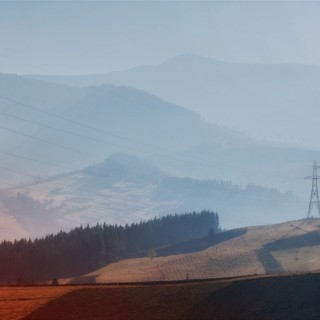
In 2014, the UK government introduced legal provisions for a capacity market in Great Britain. Many countries – including Poland – have since then followed the developments on the island. FAE describes the power market in Great Britain as well as measures to raise its security of supply. It also compares the volume of Great Britain’s capacity reserve with that of Poland. The goal of the project was to analyse the results of the capacity auction in Great Britain in December 2014 and to draw possible lessons for Poland in view of the special situation of the Polish power sector.
6.4.2015 -
Electricity and industrial competitiveness
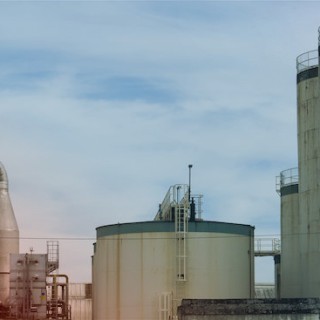
Industrial competitiveness is at the centre of the Polish debate about the future (and the logic) of climate and energy policy. There is a widely held opinion that low prices are the most important condition for a thriving industry.
19.12.2014 -
How do we deal with summer peaks? Changes after the crisis in 2015

Will photovoltaics save us from the blackout? Summer peaks still remain a challenge, although over three years have passed, since the crisis in 2015 where the industrial consumers were faced with limitations in electricity supply. In October, Minister of Energy admitted that 2 GW of PV could help Poland to avoid blackout in the future. It has been known for many years. Forum Energii presents its assessment of changes that have been introduced to the energy system to avoid similar situations in the future.
25.10.2018 -
Offshore energy | Downwind or upwind?

Offshore can become a Polish specialty. It can be a source of cheap, clean energy and help to improve energy security. Implementation of this technology is possible if only government decision is taken. It is also important to speed up the process of obtaining permissions by investors and reduce investment costs.
28.11.2018 -
Poland's Energy Policy 2040 in the spotlight

Probable delays of the nuclear energy project, insufficient attention to energy costs and the risk of non-compliance with EU climate and energy targets – these are some of the comments of Forum Energii on the draft Poland’s Energy Policy.
15.1.2019 -
COP24 - what next with the climate policy in the EU?

The practical impact of the climate summit agreements on EU and Polish policy is rarely appreciated. Meanwhile, climate policy will be an important point of reference in discussions on integrated national plans, national long-term strategies, or when setting the financial framework for 2021-2027. What are the conclusions of COP24 and, above all, what to expect this year?
22.1.2019 -
Good heating practices from Denmark and Germany. Conclusions for Poland

Currently Poland faces a choice of long-term action plan in heating. As part of the Clean Heat project Forum Energii took a deep insight into experiences of Denmark and Germany, which significantly modernized their heat supply systems and improved air quality at the same time.
23.1.2019 -
Energy transition in Poland | Edition 2019

Growing imports of gas, coal and electricity. Increasing importance of gas in the energy mix and stagnation in RES. Increase in greenhouse gas emissions. These are the most important conclusions from this year's edition of the report "Energy Transition in Poland" prepared by the Forum Energii. Full report in English will be available soon.
9.4.2019 -
Clean heat 2030 | Strategy for heating
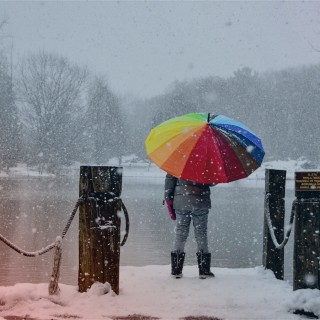
In the report "Clean Heat 2030. Strategy for heating" Forum Energii examined how to make heating no longer a source of smog in Poland by 2030 in a cost-effective and socially acceptable way. According to the analysis, health costs of pollutants can be reduced by 50% within a decade and dust emissions from individual heating by 91%. At the same time, CO2 emissions from heating will fall by 30%.
17.4.2019 -
Small steps to big changes | Impact of the "Clean Energy..." package on power sector

We are starting to implement new EU energy regulations. Will the "Clean energy for all Europeans" package heal the Polish energy sector and give it an impulse for development? How can the energy consumer benefit from the changes? In Forum Energii's report "Small steps to big changes", we analyse the provisions of the Package and their consequences for Poland.
12.9.2019 -
From the Loire to the Vistula River | Three steps in planning the energy transition

Polish-French relations have become a bit difficult lately. When President Macron said in an interview that the Paris climate protesters should move to Warsaw because it is Poland that is blocking European climate ambitions, Poland was in turmoil. Leaving aside the emotions, it is worth looking at how the French are coping with the energy transformation. This is what the new analysis of the Forum Energii is about.
30.9.2019 -
Heating in Poland | 2019 edition

While the battle for new climate targets for 2050 is under way in Brussels, many Polish cities and villages are already struggling with smog. Forum Energii gathered the most important data on heating in order to highlight the importance of heating, which is treated as a poor cousin of the energy sector.
16.12.2019 -
Anti-smog roadmap for Żywiec | Clean heat by 2030
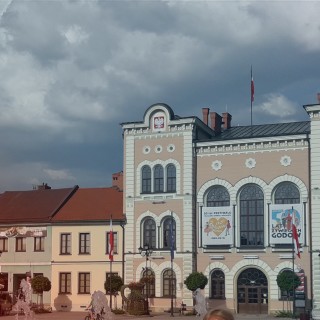
The challenge of fighting the coronavirus and the upcoming spring are distracting public attention from the problem of smog. But it will not disappear and as the boomerang will return in a few months with the start of the heating season. Especially to the towns and cities - where, like in Żywiec, more than 80% of heating energy comes from coal. In the latest report of the Forum Energii Anti-Smog Roadmap for Żywiec. Clean heat by 2030." we indicate what steps should be taken to get rid of smog by 2030. Now the report is available only in Polish, but English version will be published soon.
21.4.2020 -
Energy Boost for Poland
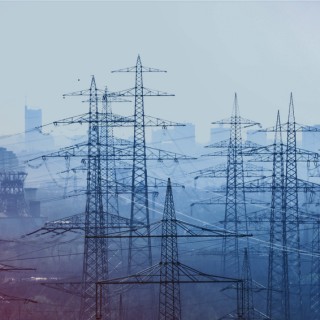
"Energy Boost for Poland" - a package for the economy prepared by the Forum Energii and Polish Confederation Lewiatan. Forum Energii and the Confederation Lewiatan call for the adoption of the "Energy Boost for Poland" package, which aims to mobilise available public and private funds for the Polish energy modernization. The implementation of the "Energy Boost for Poland" will stimulate investments worth over PLN 580 billion, which will create 240 thousand new jobs. Investments in the energy sector should be an element of the strategy for overcoming the crisis caused by the coronavirus pandemic.
11.5.2020 -
Renewables in heating

Heating and all of us in Poland have a problem. In domestic heating we rely on technologies from the 50s and 60s of the last century. In winter we have the worst quality air in the European Union. The society bears the enormous health costs related to air pollution - 120 billion PLN annually. We use primarily coal, which we are running out of, and we need to cover the costs of CO2 emission allowances. What next? Does coronavirus mean the end of dreams about clean air and the end of investments in modern technologies? Quite the opposite. Right now we should be looking at renewables.
13.5.2020 -
Poland: climate neutrality by 2050. Electrification and sector coupling

Electrification sets the direction of inevitable changes in many areas of our lives, including transport and heating. This direction will force a closer cooperation of various sectors of the economy with the future, completely different from today's power system. The integration of three industries — transportation, heat, and power generation— is the new concept for the operation of the entire energy sector. What can it look like in 2050? How will the necessary changes bring Poland closer to the goal of climate neutrality? Forum Energii in the new analysis convinces that a good strategy of sector coupling is a benefit for the Polish economy and society.
19.6.2020 -
How Poland can reach higher GHG emission reduction targets by 2030

At least 55%—this is the reductions target proposed by the European Commission for greenhouse gas emissions (GHG) by 2030. There is no turning back from increasingly demanding climate policy. In its latest analysis, Forum Energii shows how Poland can meet this policy.
4.12.2020 -
How to fill the coal gap? 43% RES by 2030?
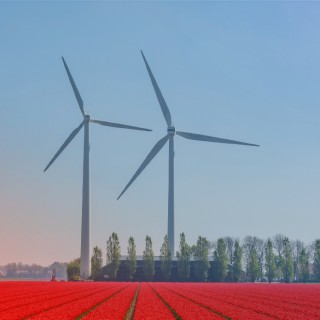
Poland has started phasing out coal. But while production is decreasing, CO2 emission allowances are becoming increasingly expensive. After 2025, when public support for outdated coal blocks runs out, energy companies will want to shut them down. With a decade, at least 10 GW of power may be lost from the Polish power system. How can this gap be filled?
26.10.2020 -
Heat electrification in Poland | The path to clean heat

Despite the government's declarations, progress in improving air quality in Poland has been poor. The rate of modernisation of buildings is slow, and public funds continue to support the replacement of old coal boilers with other coal-fired options, which other European countries have phased out. Meanwhile, a huge stream of European money will be flowing towards 'clean heat' in the coming years. In the newest analysis from the Forum Energii, we explain why it is worth betting on electrification of heating, identify which technologies have a future, and explore how this will affect the energy system.
26.1.2021 -
Green Gases | Biomethane and hydrogen in Poland

Over the next decades, the way Europe generates energy will change significantly. The goal of achieving climate neutrality means fossil fuels will be replaced by renewable energy sources within 30 years. Playing a key role will be biomethane and green hydrogen produced from RES—green gases—the development of which should already be spearheaded Poland. It is necessary to start planning the rational use of these gases in the economy because there probably will not be enough for everyone, and some sectors will be easier and cheaper to decarbonise through electrification. Poland is already working on setting the framework for their use in various sectors of the economy. The latest report by Forum Energii may help in preparing the strategy.
25.6.2021 -
Visegrad Electromobility | State, perspectives and challenges
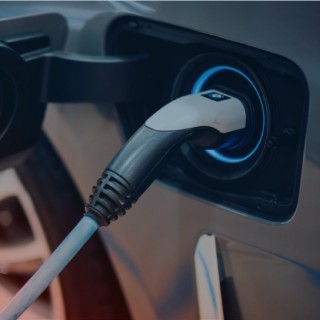
Transport accounts for the largest share of greenhouse gas (GHG) emissions in the European Union and is the only sector in which emissions have been increasing in recent years. The goal of climate neutrality and the increased reduction target for 2030 will not be achievable without a revolution in transport, as confirmed by the ‘Fit for 55’ package published by the European Commission. Given the years of a lack of effective policies in this area in the Visegrad countries, implementing appropriate measures to reduce emissions from transport becomes an urgent challenge. The hope is in electrification, especially of passenger cars.
22.7.2021 -
The district heating company of the future

Heat in Poland becomes more expensive. This is a result of an outdated business model in district heating, which rewards the company for as much heat production as possible and does not encourage to modernize the infrastructure. Meanwhile, consumers want to pay as little as possible for energy and heat. One of the key elements of the game for lower bills and lower CO2 emissions is becoming energy efficiency of heating systems and buildings. This completely changes the market conditions in which heating companies have to find themselves. If we do not want them to collapse - it is necessary to implement a new business model in district heating. Forum Energii writes about how it could look like in its latest report.
16.9.2021 -
Ready for 55%. A guide to financing the energy transition from 2021
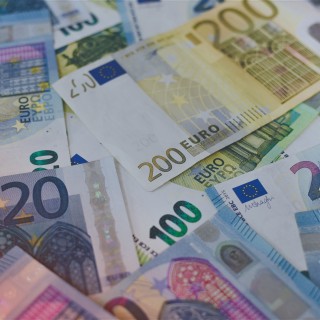
It’s PLN 560 billion [EUR 124 bln]. This is the amount Poland can allocate for the energy transition and phaseout of coal thanks to EU membership. This is a historic opportunity to shift the Polish economy—including the energy sector—to the low-carbon track and develop new industries. Although last year the Polish government declared the intention to pursue climate neutrality in line with EU policy, Poland’s decision-makers are anxious that the country will not be able to handle the challenge of decarbonisation. At the same time, the government’s relations with EU institutions are deteriorating, making talks about the EU funds difficult. So then, what resources are at stake?
9.11.2021 -
Charge, Set, Go! | Electrifying Urban Transport in Germany and Poland

When more than 40 countries signed the Katowice Partnership for E-Mobility at the 24th session of the Conference of the Parties (COP 24) in Katowice in 2018, it set a milestone for a global approach for the electrification of mobility and the decarbonisation of the transport sector. For Poland and Germany, as the sixth-largest and largest passenger car markets in Europe by sales, it was yet another confirmation of a lived reality. Dedicated friendship and strong long lasting economic cooperation are characteristic for the relationship of both countries and the motto of the framework, Driving Change Together, reflects their joint ambition for the electrification of the transport sector.
31.12.2021 -
Clean heat as an engine for the Polish economy
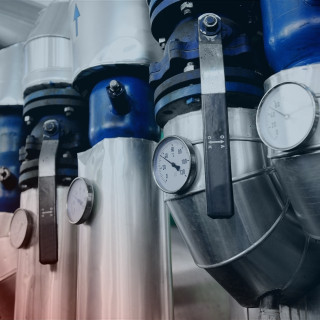
A new approach to heating is needed in Poland. It is currently a neglected area where the necessary changes and modernisation have been postponed for years. As a result, every winter we have the most polluted air in the European Union and the Polish district heating system is on the verge of collapse. The costs and scale of the investments needed are enormous, but further delays will lead to an even higher prices.
5.4.2022 -
Past time for gas?

Over the past two years, natural gas has become a high-risk fuel: it is subject to huge price fluctuations and, following the disruption of supplies from Russia, competition for imports of this resource from other sources is increasing. Not long ago, there were plans in Poland to significantly increase the consumption of natural gas throughout the economy - by 75% by 2035. It was supposed to be a transition fuel.
14.6.2023 -
The electricity system needs heating sector
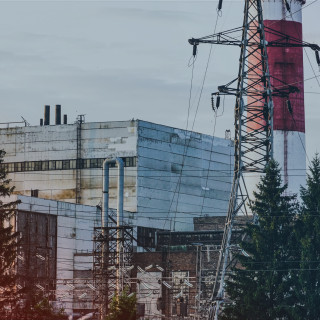
The National Power System (NPS) will face new challenges. These include the uninterrupted supply of energy to consumers when the oldest and most emission-intensive generating units are phased out, but also the efficient use of variable RES sources. District heating may be the key to solving NPS problems. In peak demand of the NPS, additional energy can be provided by cogeneration units, in times of surplus energy in the system - it can be absorbed by electric boilers producing cheap heat. The operation of CHP units can also improve the performance of electricity grids.
13.7.2023
Insights(43)
-
The meaning of the EC decision on Polish capacity mechanism
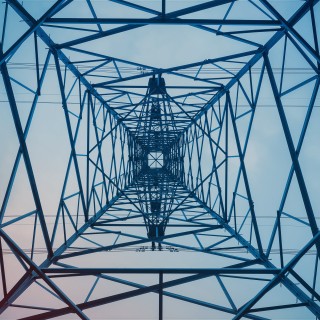
The year 2017 in the Polish power sector was marked by the preparation of the Capacity Market Act. The purpose of this regulation is to improve the profitability of Polish generators and to stabilize electricity supplies in the future.
7.2.2018 -
Why Paris is important?

The final phase of negotiations aimed at counteracting climate change has commenced in Paris. For the first time in 8 years there is a real chance to sign a global agreement. Two countries which have been the most sceptical till now and, at the same time, responsible for the biggest greenhouse gas emissions - the USA and China, have decided to limit the emissions and, among others, to develop renewable energy resources.
4.12.2015 -
The US is withdrawing from the Paris Agreement - what does it mean?

President Donald Trump has announced the retreat of the Paris Agreement and a wish to renegotiate the global agreement. Trump's decision has a political dimension and will not have an impact on Europe's energy strategy.
2.6.2017 -
A low-emission economy is a global model

The Paris Agreement is not only a success for the negotiators, but above all evidence of the growing interest in the development of a low-emission economy. According to the International Energy Agency, within 5 years RES capacity will constitute 60% of all power in the energy sector. Despite the fact that we are only talking about capacities and the real production of green energy is lower, it is a strong signal concerning the trend of energy production in the world.
16.11.2016 -
Hidden potential of district heating

Up to 2 GW of additional power in summer peaks can be supplied by the existing heat and power plants to the National Power System (NPS). This is four times more than the capacity of the new Turów power plant unit, which is currently under construction. Such a potential lies in the production of network cooling, accumulation of heat, running in "condensation" mode (without heat production) and cogeneration. Reaching for these resources will improve the security of the energy system and reduce emissions to the environment.
8.10.2018 -
The amendment to the Energy Law Act lowers the rank of the Poland's energy policy

The draft amendment to the Energy Law (October 2018) prepares the implementation of the EU requirement to submit integrated national plans in the field of energy and climate. The regulations proposed in this form, however, lower the rank of the national energy policy. They also change the mode of appointing the President of the Energy Regulatory Office, which may affect its independence. This is worrying.
16.11.2018 -
Polish Energy Policy until 2040 | First commentary of Forum Energii
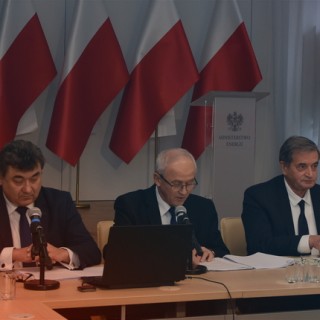
Today, the Ministry of Energy presented the State Energy Policy outline for consultation – a welcome announcement. We consider this a basis for public discussion, in which energy and environmental experts, business representatives and the broader society alike should participate. Energy affects all of our lives. Particularly at times of high energy prices we have to think about what to do next.
23.11.2018 -
Poland’s Energy and Climate Plan to 2030 – not sufficient EU perspective

The National Energy and Climate Plan 2021-2030 is the second strategic document for the Polish energy sector in addition to the long-awaited Poland’s Energy Policy until 2040. It will affect, among other things, investments in the energy sector, the implementation of our international commitments, energy security and improvement of air quality. Therefore, it should not only describe the current state of the Polish energy sector, but above all define future objectives and determine measures and actions to achieve them.
26.2.2019 -
Energy and climate targets until 2050

The national energy and climate plans and their assessment (objectives, instruments, financing) by the European Commission are a major qualitative change in the process of developing and implementing the EU energy and climate policy. Until now, energy and climate targets have been scattered across many pieces of legislation and are now linked by the overarching objective of climate neutrality in 2050 resulting from the Paris Agreement.
21.3.2019 -
Clean heat 2030 | Costs and benefits
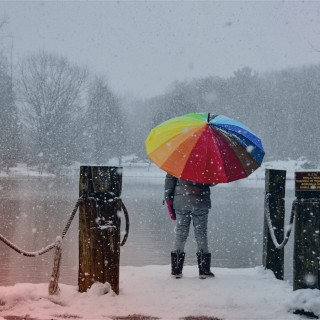
It would not be an exaggeration to say that domestic heating, both district heating and individual, is ahead of the historic bend. If we get into this turn right, we will be very successful, if not, the results may be significant.
20.5.2019 -
Power sector after the elections | Three tasks for the new government

The Polish energy sector is at a turning point. What will the next government find after the elections in the autumn? It will inherit not only electricity market, but also smog.
19.6.2019 -
Climate neutrality - empty watchword or concrete goal? | The French perspective

After June negotiations at the European Council, climate neutrality is no longer an abstract concept used by international experts, but is becoming a widely commented issue of public interest. As Michał Kurtyka, President of COP24 in Katowice, said at one of the meetings of Forum Energii: "Climate neutrality is a civilisational choice for Europe".
23.8.2019 -
DEcarbonization in Germany 2030

Just before the UN climate summit in New York, the CDU/CSU and SPD coalition announced new ideas on how to achieve Germany's 2030 climate targets. For now, these are mainly national measures, but a similar discussion and perhaps similar solutions will emerge at European level. This will have a significant impact on the EU regulations concerning the energy sector, and thus also on Poland.
24.9.2019 -
Draft Poland's Energy Policy 2040 - new and better?

On the 8th of November 2019, the Ministry of Energy has presented an updated draft of Poland's Energy Policy until 2040. Yet, the adoption of the energy strategy will be the responsibility of the new government, including new ministries - the Ministry of State Assets and the Ministry of Climate. In our opinion, it is high time for Poland to address the climate and energy crisis. It is also important for us to start implementing the commitments made at the EU forum. The energy sector should be given a course in line with international trends, and not be allowed to float in a random direction.
29.11.2019 -
Climate neutrality – Poland is in favour and even against | A talk about the results of the last European Council
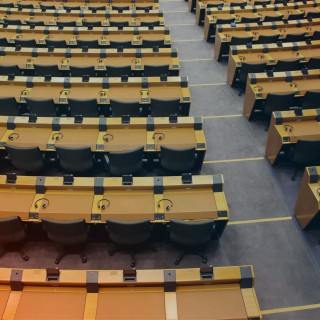
What actually happened at the recent European Council? Poland supported the goal of climate neutrality or quite the contrary? What can be expected in the coming months? Aleksandra Gawlikowska-Fyk and Joanna Maćkowiak-Pandera discuss the results of the European Council conclusions and its implications.
20.12.2019 -
Just Transition Fund - we will benefit, but under conditions

The European Commission presented a draft regulation on the Just Transition Fund. This is an instrument to bring the UE closer to achieving climate neutrality in 2050 and prevent possible social exclusion. Although Poland proposed the creation of the fund, we missed the discussion about its shape.
15.1.2020 -
Will the Polish offshore finally speed up?

Offshore wind farms are still a distant perspective, even though the first location permits were issued in 2012. After many years, a draft act on the promotion of offshore wind electricity generation, which is expected to accelerate offshore development in Poland, has been finally prepared. The period of public consultations of the bill ended on February 14th and there is a chance to complete the legislative efforts by mid-2020. Are the proposed solutions sufficient and will they serve their purpose?
17.2.2020 -
Investment in the energy sector as a remedy for the crisis

After a few weeks of the pandemic in Poland, we know for sure that the virus will infect the economy, even as we finally get rid of it ourselves. We need to act decisively right now. But we also need to think about economic recovery, in which the low-carbon transformation of energy has to take a central place. This is the time for bold decisions, so far postponed. A strategic rebuilding of the sector must be announced today to help society emerge from the crisis and provide long-term benefits.
1.4.2020 -
The EU is ready to co-finance our energy transformation ― what does the Polish government have to say?
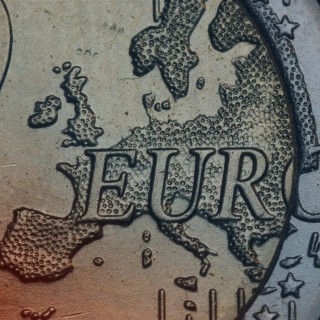
On 17 July the European Council will launch the final negotiations on the EU budget, unprecedented in scale and intended to pull the EU out of recession and give it a new boost. Since December 2019 Poland has been part of the EU discussions, trying to distance itself from climate neutrality in 2050. Although all other Member States agreed to it. For the time being, however, it seems that we may be one of the countries that will benefit most from the distribution of funds―we may gain over PLN 140 billion for the energy transition alone. Yet, the money will not be granted unconditionally. Poland needs to have a plan in place to achieve the EU's common goals―to commit to climate neutrality and to contribute to a 40% or even 55% reduction in emissions by 2030.
15.7.2020 -
Renewables in the Polish energy mix. Still not enough to meet the targets

The energy transformation has accelerated significantly. Thanks to the enormous cost reduction of solar PV and onshore wind, these technologies are increasingly being chosen by the private sector and households as an investment that allows for significant savings. In recent years, however, the development of renewable energy sources (RES) has depended on state policies and support schemes. They were to enable Poland to achieve the so-called RES target - renewables were to account for 15% of gross final energy consumption in 2020[1]. According to our estimates, the target is still far from being achieved - in 2019 the share of RES amounted to 11.5% only and everything indicates that this year too, the result of 15% is out of reach.
23.7.2020 -
Energy sector integration | Key to becoming climate-neutral by 2050

The future energy mix will be dominated by renewable energy sources (RES) with zero production costs, such as wind farms and photovoltaics. The abundance of cheap electricity will allow for the replacement of fossil fuels, both in heating and transport sectors. Effective integration of these sectors, within one energy system, will also help to solve the problem of weather-dependent RES production.
28.7.2020 -
55% ― only without panic

EU climate policy is accelerating again. The European Commission has just proposed raising the target for reducing greenhouse gas emissions until 2030 to 55%. Poland has always opposed ambitious goals, but now a breakthrough seems possible―the end of coal is inevitable, we must take care of energy security, after coronavirus we need new investments, and reducing CO2 emissions is associated with improving air quality, which the government defines as a strategic challenge. By taking these measures now, in heat, electricity and transport, emissions can be reduced by over 40%. The remaining cuts will come from the new policies on industry and agriculture and the sharing of efforts between Member States.
18.9.2020 -
Poland can contribute to the EU’s 55% target while solving key problems

Poland is lagging behind cutting greenhouse gas emissions, but diversifying its energy mix, making heating clean and increasing traffic electrification could improve emission reductions and transform the economy for the future.
27.11.2020 -
Five energy projects that must happen in 2021

The future begins today, not tomorrow. The year 2020 was unusual in many ways, so many people will be relieved that it is now ending. But in terms of the energy transition, it was a watershed year. The European Union reached agreement on the European Green Deal. In Poland, the government and labour unions openly admitted that Poles need to talk about the end of the coal era. The energy sector in the country is at a crossroads and it is time for it to choose the right path for its further operation and development in 2021.
28.12.2020 -
Green hydrogen strategy still too gray
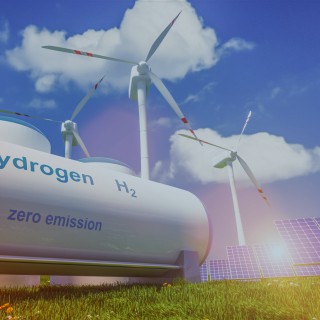
The government is about to conclude its public consultation of the draft Polish Hydrogen Strategy until 2030 with an Outlook until 2040. It gives hope that this time around Poland will join other European countries in the early stages of creating new technological solutions and supply chains. It is a chance for building national potential in a new industry and creating jobs. However, the hydrogen strategy is not yet reflected in other strategic documents defining the future of the Polish energy sector.
15.2.2021 -
EU Recovery Fund: 3 things Poland needs to do for the mechanism to bring real change

The National Recovery Plans are built on credit. The investments we design today must serve future generations—our children—because we all will be paying it back until 2057. It is based on concrete reforms, changes that need to happen in order to achieve the intended objectives. The consultations on the recovery plan in Poland is now coming to an end. How should we change it so that the money pays off in the future? In this opinion, I refer to the Green Energy and Energy Efficiency Component.
31.3.2021 -
Poland needs 2 GW of new photovoltaic capacity annually - that's why prosumers should be supported

The government is announcing changes in the support system for prosumers. The combination of the current operational support scheme (a version net-metering, called “rebates”), subsidies in the form of the “Mój Prąd” program and tax credits resulted in rapid development of solar energy in Poland. Within a few years the installed capacity in micro-installations increased from 200 MW to 3.3 GW. Security of energy supply in the summer has strengthened, CO2 emissions have been reduced and the generation mix has become more diversified to some extent. Citizens have fallen in love with renewables for good. So what’s next?
23.6.2021 -
NABE - the hibernatus of the Polish energy sector

In the film with Louis de Funès, a separate, unreal world was created for the titular hibernatus to make him feel comfortable in the new reality. With the National Energy Security Agency (NABE) that the government is proposing for coal power, it is similar. The ring-fencing of coal assets is necessary because they are making increasing losses, the power companies are in debt, and with the coal burden in the new reality they are running out of finance to invest. However, without a cost-benefit analysis for the economy and society, or an assessment of the risks, NABE, instead of unlocking the transition, may hibernate it and introduce chaos that will threaten Poland's energy security.
28.6.2021 -
FIT FOR 55 - what will the package contain?

On 14 July, the European Commission will publish the Fit for 55 package consisting of several legislative proposals. This will officially launch the discussion on measures to achieve the interim EU climate neutrality target, i.e. a 55% reduction of CO2 emissions compared to 1990. Before these rules finally come into force, they have to be accepted by EU member countries (i.e. the Council) and the European Parliament. The negotiations will take at least a year, most likely - two. The changes will not be law until 2024, but it is high time we considered how to implement them for the benefit of the climate and the economy.
13.7.2021 -
From 2025 coal will leave the Polish energy system in waves

Poland’s energy sector is entering a period of major turbulence. The immediate question is the continued operation of the Turów power station since the EU Court of Justice recently ordered the suspension of lignite mining there. This is just the beginning of the problems. After 2025, when public support ends, the first 8 GW of coal capacity may leave the Polish system, and a little later, another 6 GW. The power plants will be shut down due to age and costs. Observing the government’s actions, one can get the impression that all hope lies in the proposed National Agency for Energy Security . Yet, this is a side discussion because no change in ownership structure will improve the situation of the failing coal power industry. Instead, difficult decisions must be made, and the possibilities of supporting the operation of coal-fired power plants with public money are already very limited.
27.7.2021 -
The spectre of the ETS gap
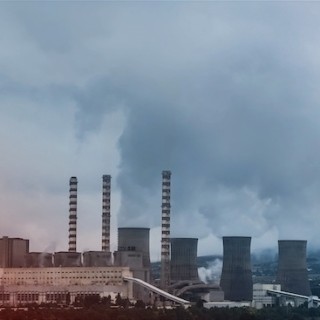
In the following months, negotiations on the Fit for 55 package, which was proposed by the European Commission in July this, year will continue. One of the key elements of these negotiations is the reform of the EU Emissions Trading System (EU-ETS). The Polish government is arguing that the number of allowances allocated to Poland will be lower than the emissions of installations covered by the ETS, creating a so-called imbalance of CO2 emission allowances. Where does the imbalance come from, and can it be reduced? And is this the most important element in negotiations of the new EU ETS? We explain below.
27.8.2021 -
10 steps to overcome the energy crisis

The prices of coal, gas, and CO2 are reaching record levels while the price for electricity is galloping, causing panic among politicians, energy consumers, and institutions responsible for maintaining Poland’s energy security. There is a state of emergency in the Polish energy sector caused by, among other things, the situation on the energy source market, but not only. The country is also bearing the consequences of many years of postponing necessary modernisation decisions. It is time to take urgent actions that match the situation.
8.12.2021 -
E-mobility - a chance for further development of economic cooperation between Poland and Germany

The Polish and German economies work in a system of interconnected vessels.Even if the echoes of the visit of the new German Chancellor Olaf Scholz to Poland suggest that there are many issues that divide us, there are also those that unite us. For instance the development of electromobility may raise this cooperation to a higher level, but it is necessary to prepare strategically for it. The focus should be on cooperation in the area of technological developmentbattery production and recycling, joint planning of infrastructure, as well as exchange and sharing of knowledge, especially in the area of innovation.
20.12.2021 -
The capacity market in Poland―more expensive than ever

Poland has already held six power auctions. Analysis of their results shows that this mechanism in its current form is not an optimum solution for the country. The capacity market has proved more expensive than anticipated, has failed to curb the increase in electricity prices and, in addition, has contributed to the petrification of the outdated and coal-based generation structure. The arduous task of plugging the coal gap has only just begun, which is why decisions on modernisation and on methods for supporting capacity up to 2030 must be taken urgently.
13.1.2022 -
Lack of transformation hikes energy prices, not climate policy

A recent information campaign led by energy companies and echoed by politicians, suggests that CO2 accounts for as much as 60% of the electricity cost. This message creates an impression that the cost of buying allowances amounts to 60 percent of the end users’ electricity bill. But this is not the case. It does a great deal of harm - it distracts attention from the fundamental problems of the Polish energy sector. It distances us from solutions that can effectively stop price increases. In this article - on the basis of adopted assumptions (presented in the annex) we present, among others, what energy prices for households are actually made of.
4.2.2022 -
The end of energy resource imports from Russia?
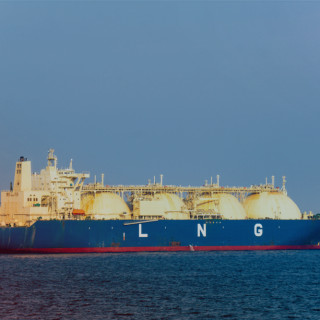
On February 24, Russia started the Ukrainian war. Nothing will be the same again. Russia's brutal attack made the ongoing conflict around energy resources all the more obvious. In 2021 alone Russia could have earned PLN 500 billion (or $120 billion). from the export of energy resources[1]. This revenue funds the Kremlin's military spending. Now we are considering whether giving up Russian fossil fuels is possible. Undoubtedly, this would be a radical solution with far-reaching and not entirely known consequences. If this were to happen, solidarity and close cooperation within the EU would be more important than ever before. In this article, we analyze what options Poland has to break its energy dependence on Russia.
28.2.2022 -
Is the Kremlin turning off the gas tap? Time to exclude gas and coal from households
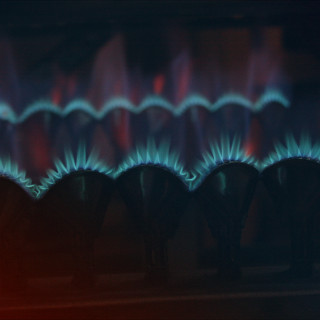
How to prepare households for an energy war with Russia? Gazprom is suspending gas supplies to Poland under the Yamal contract. This is no great surprise. At the end of this year, Poland was going to give up buying Russian gas anyway. Physically, there is unlikely to be a shortage of gas, but Poland is entering a period of high prices, which will limit the use of this raw material. The role of the state should be to wisely support society in smoothly passing through the crisis. Without reducing demand in sectors where it is possible, this will be difficult.
28.4.2022 -
RRP: The bare minimum for over €9bn

With one year delay the national Recovery and Resilience Plan (RRP) is entering Poland. So far, the discussion around the RRP has focused primarily on money. Meanwhile – and this is particularly evident in the area of energy transition – the RRP is an instrument that has mobilised the Polish government to work out the necessary reforms, involving an in-depth analysis of challenges ahead, assessment of specific solutions, and necessary legal changes, all within specific timeframe. Investment support – although crucial – plays a secondary role in accelerating the implementation of reforms.
2.6.2022 -
How to maintain Belchatow's energy future

Europe is going through its biggest energy crisis ever. The attention of decision makers is focused on ensuring energy and heat supplies in the coming months. Meanwhile, long-term challenges and problems in the energy sector that have not been solved before are only accumulating. One of them is the future of the largest power plant in Poland.
15.11.2022 -
Russian oil disappearing from Europe

In 2021, about a quarter of the oil used in the EU, about €48 billion worth in total, came from Russia. The invasion of Ukraine prompted EU countries to impose sanctions on this commodity. However, the sanctions contain loopholes that have made Poland the EU’s largest importer of Russian oil. While sealing the sanctions regime is possible, electrification of transportation will in the long run safeguard against the risk of replacing dependence on Russia with dependence on other petrostates.
9.2.2023 -
Billions of Euros for LNG and LPG still flowing from the EU to Russia

The EU embargo on Russian fuels did not extend to natural gas (including LNG, liquefied natural gas) or LPG (liquefied petroleum gas). In 2022 alone, EU countries paid as much as 16 billion euros for Russian LNG, a record high. Poland did not import any LNG from Russia, however it is the largest importer of LPG in the entire EU. In 2022, Poland spent about 700 million euros on Russian LPG. In this article, Forum Energii will explain how to close the loopholes in the EU embargo on Russian resources to finally eliminate them from the EU market.
29.3.2023 -
Europe needs a new energy security strategy

The European Union’s Energy Security Strategy was adopted in 2014, shortly after Russia’s annexation of Crimea. By now, not all of it has been implemented, and some of its points are outdated. After ten years and Russia’s full-scale attack on Ukraine—and in the era of a climate crisis—the EU’s energy security strategy needs to be rewritten. The basis of this strategy should be a cost-effective, but also decentralized, digitalized and decarbonized energy system based on renewable sources in which energy efficiency plays the key role. Such a future is worth fighting for.
28.7.2023 -
Anatomy of Dependence: How to Eliminate Rosatom from Europe

EU countries depend on cooperation with Russia in the field of nuclear energy. This has meant that even despite the Russian full-scale invasion of Ukraine, the Rosatom corporation has not been sanctioned and trade in this sector is growing. This situation is unfavourable for the EU and increases its vulnerability to blackmail from Russia. Moreover, it strengthens the Russian military. The EU should increase its efforts to diversify supplies and build its own capabilities in the nuclear sector.
5.9.2023
Events(7)
-
Panel expert meeting | International heating strategies | Recommendations for Poland
11.6.2018 CZIiTT, Politechnika Warszawska ul. Rektorska 4, Warszawa
Forum Energii is leading a project "Clean Heat" that aim is to support the development of a Polish country heating strategy in the context of European 2030 CO2 targets and heavy air pollution. The panel of experts on the June 11, 2018 is an element of this project and was dedicated to transition strategies of the heating sector in Europe.
-
Conference | Clean heat 2030 | Strategy for heating
17.4.2019 CZIiTT, Politechnika Warszawska ul. Rektorska 4, Warszawa
There is no longer any need to convince anyone in Poland that improving air quality is a priority and a major challenge. Smog destroys health, generates costs, affects the quality of life and devastates the image of Poland in the world. How to ensure that air quality starts to improve, and society is willing to accept change? On the April 17, 2019 during the conference in Warsaw, Forum Energii, together with partners, presented the concept of the heat supply transformation until 2030.
-
Panel expert meeting | National Energy and Climate Plan 2021-2030
21.3.2019 Warszawa
In January this year, the regulation on the governance of the Energy Union entered into force. Just a few days later, on time, the Ministry of Energy published the draft National Energy and Climate Plan for 2021-2030 (NECP)¸ required by this regulation. This is the second, next to the long-awaited Poland's Energy Policy until 2040, strategic document for the Polish energy industry.
-
Expert meeting | Climate and energy big picture 2030 after the European elections
4.7.2019 Warszawa
On the 4th of July, Forum Energii organized a debate on EU post-elections priorities 2030 in the field of energy and climate. What are the challenges awaiting the next European Commission and Parliament? What should be the EU key priorities regarding energy transition in the next 10 years? We discussed it within a group of key organizations from the energy, climate and transport sector.
-
Anti-Smog roadmap | Inspirations from Żywiec and other Polish cities
22.4.2020
Forum Energii invites you to take part in an online conference entitled "Antismog Roadmap. Inspirations from Żywiec and other Polish cities", which will be held on 22 April. Will it be possible to increase the RES share in the local energy mix? To what extent? How to reduce heat demand in buildings? When will air pollution be reduced? What will be the costs of the change? What do the experts recommend? What inspiring examples of smog actions are already being introduced in other cities? The conference will be held in Polish.
-
Panel expert meeting | How to "green" Polish district heating?
12.5.2020 zoom
In 2019, in the Clean Heat 2030 strategy, we identified four scenarios for reducing CO2 emissions in district heating. One of them predicted its complete decarbonisation by 2050. At that time, however, we did not present in detail the technologies that could help achieve this goal. During panel expert meeting we will present those which will play the most important role in the next decade and will enable us to achieve even 40% of RES in the heating sector in 2030. Together with the Renewable Energy Institute we have analysed their costs, application and specificity. We have not ignored the state of natural resources in Poland, regulations and megatrends. All this was described in the report "RES in District Heating. Technologies that will change the reality".
-
Panel expert meeting | Green Gases
18.11.2020 zoom
One of the key goals of the European Union is to achieve climate neutrality. This cannot be done without the energy transition. The aim of the event, in the formula of a panel expert meeting, was a critical discussion on the further development of green gases, based on the guidelines for the hydrogen strategy of the Ministry of Climate and the report of the Forum Energii, which will be published soon.

